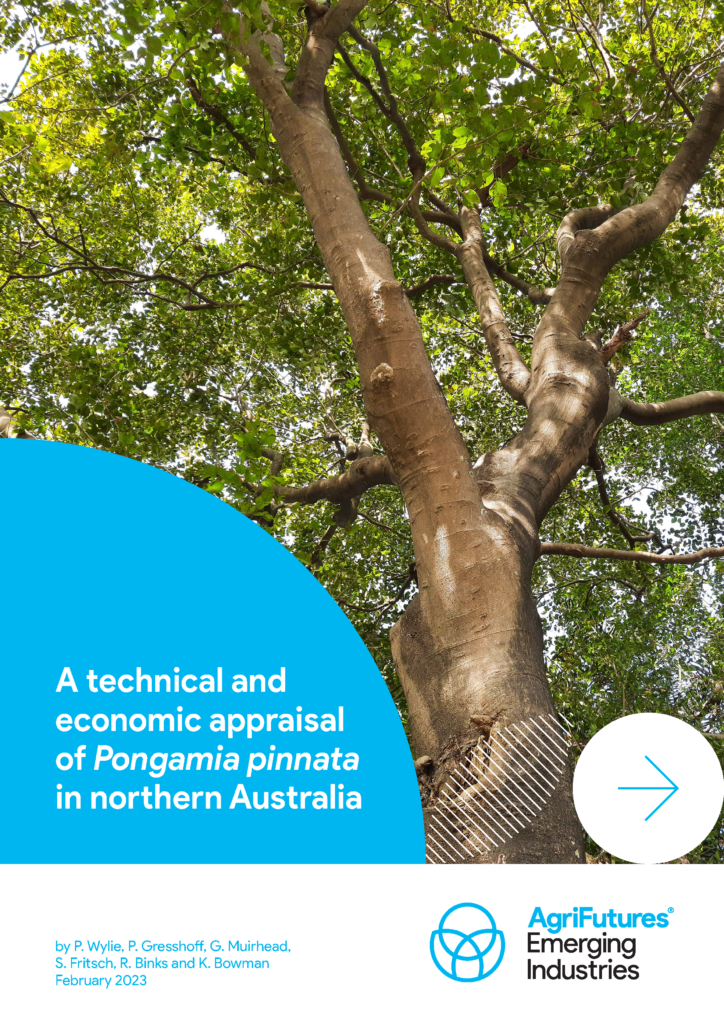Pongamia (Millettia pinnata, formerly known as Pongamia pinnata) is a tree from a legume family, thus is able to supply its own nitrogen. The crop is tolerant of heat, salinity and flooding, and is capable of growing in soils not suited for broadacre crops. Pongamia is most commonly grown for its seeds, which have a high oil content that can be converted into second-generation biodiesel.
This study builds on previous assessments of Pongamia and considers the value of revenue streams beyond those offered by Pongamia oil. These include use of seed protein meal as a stock feed supplement, use of the seed pods as a biomass fuel and use of Pongamia to sequester carbon.
There is a further opportunity given the significant increase in the value of both renewable fuels and carbon credits. When used as a feed supplement, this meal has the potential to reduce methane emissions from livestock, which currently contribute 66% of Australia’s agricultural emissions, and help restore nitrogen-depleted grazing lands in northern Australia.
This report also includes a review of technical aspects of clonal propagation, agronomy, processing and potential yields in various locations to test the readiness of Pongamia for commercial production.
Although this study showed Pongamia plantings may produce an internal rate of return of between 13.5 to 15%, the key challenge for this industry is to produce at the scale required to justify the cost of building a processing plant.





